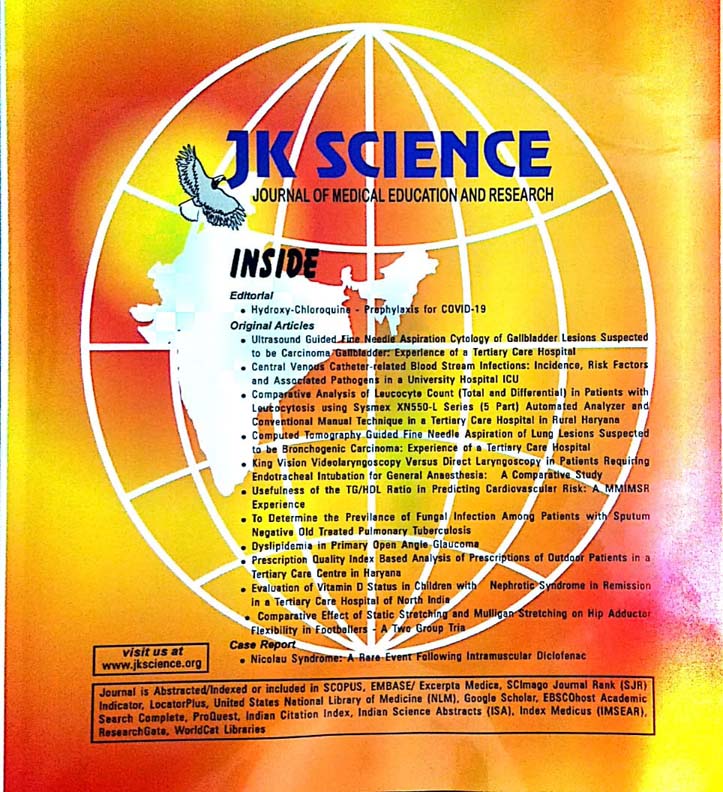Potential Anti-inflammatory Role of Anti-Diabetic Agents
Keywords:
Glucose-lowering Agents, Diabetic Complications, Inflammatory Mediators/ Markers, Interlukin-6 (IL-6), hs-CRP, ESRAbstract
Many current studies show an association of diabetes and secondary complications with chronic inflammation. Evidence of these immunological changes include altered levels of cytokines and chemokines, changes in the numbers and activation states of various leukocyte populations, apoptosis, and fibrosis during diabetes. Therefore, correcting inflammation may be beneficial to stop, impede, and improve diabetes status and its associated complications. Apart from anti-inflammatory drugs, various hypoglycaemic agents have also been found to reduce inflammation that could contribute to improved outcomes in diabetic patients. Various studies have been carried out with thiazolidinediones, dipeptidyl peptidase-4 inhibitors and Metformin showing moderate-to-strong anti-inflammatory action. Sulfonylureas and alpha glucosidase inhibitors exert modest anti-inflammatory effects, while the injectable agents, insulin and glucagon-like peptide-1 receptor agonists, may improve secondary complications due to their anti-inflammatory potential. Currently, there is paucity of human clinical data on anti-inflammatory effects of sodium-glucose cotransporter type-2 (SGLT) inhibitors. Nevertheless, it is essential to distinguish between anti-inflammatory effects resulting from better glucose control and effects related to intrinsic anti-inflammatory actions of the glucose-lowering agents. Also, it is important to define what role the anti-inflammatory effects of these anti-diabetic agents may play in the prevention of macrovascular and microvascular diabetic complications.
Downloads
Downloads
Published
How to Cite
Issue
Section
License
Copyright (c) 2022 JK Science: Journal of Medical Education & Research

This work is licensed under a Creative Commons Attribution-NonCommercial-ShareAlike 4.0 International License.





